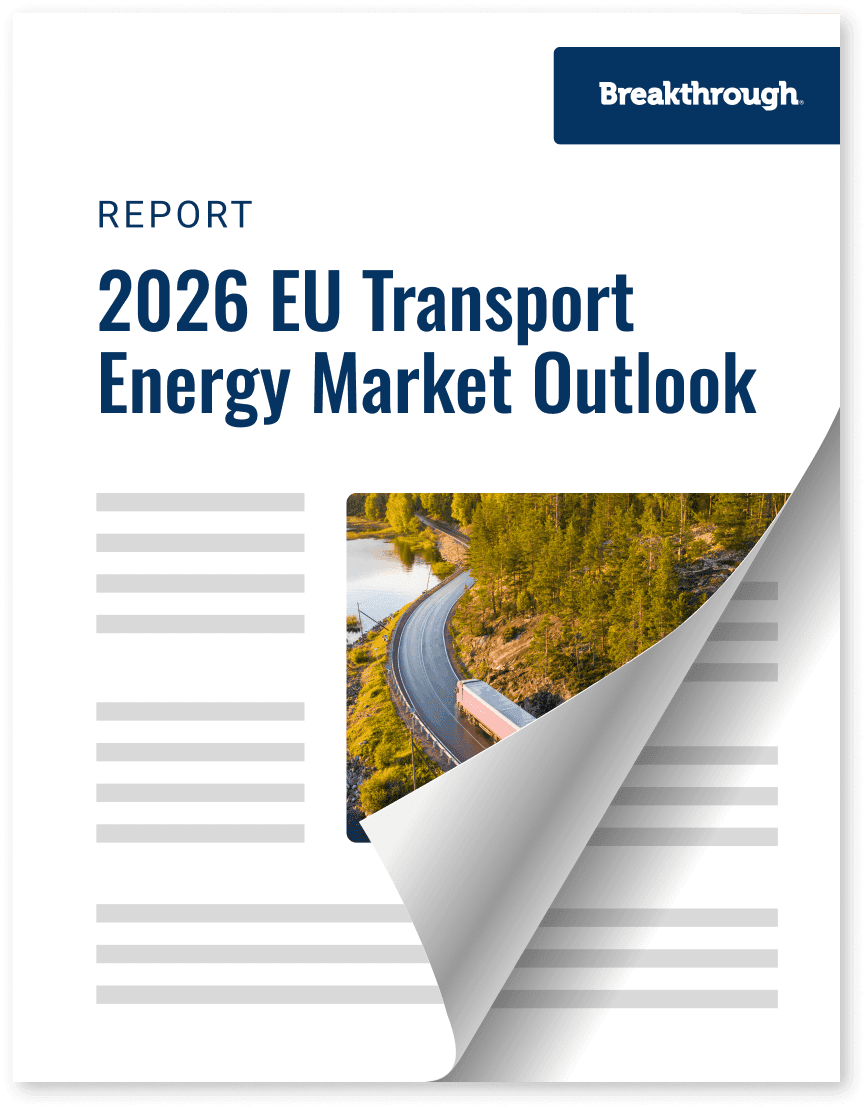2026 EU Transport Energy Market Outlook

Trending
Top Posts
Fuel
Turn Fuel Costs into Savings with Expert Fleet Optimization Strategies
7 min read
January 30, 2026
Market Events
How English Language Proficiency Enforcement Will Shape the 2026 Freight Market
5 min read
January 22, 2026
Freight
Reefer Rates Explained: What’s Driving the Trends?
5 min read
January 20, 2026
5 min read
August 7, 2025

Share:
Table of contents
Browse the table of contents to jump straight to the part you’re looking for
Transportation procurement is more than simply moving goods from one location to another. It involves creating efficiencies to find carriers and minimizing costs through industry benchmarks to maintain and improve both profit and customer satisfaction. By strategically leveraging real-time, shipper-transacted data, transportation procurement leaders can select the most optimal carriers for their network and contract competitive linehaul rates.
Explore ways to boost your procurement strategy and discover actionable tips for successful carrier negotiations. With innovative analytics tools, powered by AI and machine learning, you can enhance your procurement strategy to achieve your transportation network goals.
Transportation procurement involves the strategic sourcing and management of carriers to support operational needs. More than just a transactional activity, this is a data-driven process to optimize performance across the supply chain based on your network priorities of cost, capacity, service, and sustainability. It ensures companies can move goods efficiently and cost-effectively.
Sourcing best-fit carriers is an integral part of ensuring goods are delivered on time, in excellent condition, and at a sustainable cost. There are several considerations to prioritize when making procurement decisions that are essential for building strategic partnerships. By focusing on these elements, shippers can refine their strategies and meet operational goals effectively.
Data plays a pivotal role in helping shippers meet logistics goals. With access to lane-level insights, organizations can gain visibility into linehaul rate trends, carrier performance, and areas for optimization. These analytics support freight procurement strategies that help refine transportation network performance.
Working with the right carrier partners is important to the success of your transportation procurement strategy. Here’s how to make more strategic decisions and negotiate agreements that benefit your organization:
Transportation spend is driven by two primary components: fuel and linehaul rates. Fuel prices are influenced by several factors, including geopolitical events that can disrupt global supply chains and create volatility in oil markets. In comparison, linehaul rates are primarily driven by supply and demand. These prices fluctuate based on capacity and seasonal trends.
Innovative tools like Breakthrough’s Fuel Recovery solution, which calculates a market-based fuel reimbursement, and Capac-ID, which offers visibility into linehaul rate industry benchmarks, lane-specific carrier identification, and actionable recommendations, shippers can keep a constant pulse on the market. One critical consideration is avoiding the negotiation of 'fuel rates' during an RFP process. With Fuel Recovery and a Zero Base 'PEG' approach, fuel costs should be treated as a pass-through expense, ensuring transparency and eliminating unnecessary complexities in the procurement process.
To make informed decisions, shippers need access to clean, comprehensive data on their transportation network, along with third-party, shipper-transacted data for meaningful comparison. Using this data, predictive transportation analytics tools can ensure stronger procurement strategies and opportunities for improvement. These tools can empower organizations to compare carrier performance beyond standard pricing considerations, aligning performance with network priorities.
Entering bid agreements with carriers requires preparation and strategic thinking. It is important to consider your strategy with each carrier based on their fit to your network and reliability. To enhance your negotiation process, prioritize these elements:
The key to long-term success is effective contract management. Centralizing contractual agreements allows shippers to efficiently reference terms and ensure compliance.
Using a transportation management platform allows you to consolidate and organize contracts in one location, streamlining information, reducing errors, and enhancing collaboration.
Continuous monitoring of carrier rates compared to industry benchmark and contract compliance tools like Network Intelligence to identify areas for cost reduction and efficiency gains. These insights are necessary to refine your transportation network strategy and proactively catch discrepancies from the routing guide, saving millions. For example, Breakthrough helped a large North American packaging supplier recognize noncompliance in their transportation network, saving significant costs by renegotiating terms and ensuring alignment with their routing guide.
Generative AI enhances freight procurement processes by helping streamline compliance monitoring and identify opportunities to pivot based on market dynamics. Automating time- intensive, manual processes with AI-powered solutions allows routine tasks to be completed with ease, to creating more time for procurement teams to focus on strategic initiatives.
Breakthrough’s suite of tools is designed to take your transportation procurement strategy to the next level.
Benchmarking your linehaul rates against the industry helps you identify opportunities for growth and build a competitive edge. By understanding how your rates compare to the industry, you can leverage these insights in conversations with carriers and logistics providers and strengthen your position in the market.
Transportation procurement tools enable you to simplify complex processes, ensuring smoother operations and better resource allocation. By optimizing your routing guide and enhancing carrier selection, you can reduce inefficiencies and achieve significant cost savings across your transportation network.
Sustainability has risen in many leading shippers’ network priorities. Innovative tools, like CleanMile, provide real-time emissions tracking, roadmap creation, and execution support to help shippers reduce their transportation carbon footprint.
Ready to elevate your transportation procurement? Breakthrough’s innovative tools empower you to reduce costs, enhance efficiency, and drive sustainability across your network.
Capac-ID
Learn more about our effective freight solutions.


7 min read
January 30, 2026
Maximize performance with proven fleet optimization strategies. Learn how to manage driver compliance and leverage expanding fuel margins for real savings.
Read more
5 min read
January 22, 2026
Stricter English Language Proficiency rules are impacting driver capacity. See our data on how this is leading to upward linehaul rate pressure in 2026.
Read more
5 min read
January 20, 2026
Understand the latest trends in reefer rates. Our data analysis dissects if the market is in a seasonal swing or facing a true inflection point.
Read more